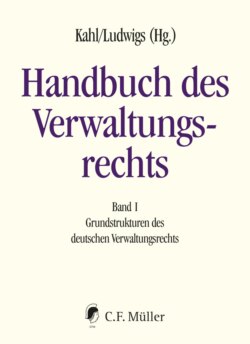| 1. | German administration was not deeply affected by the constitutional changes of 1918/19. Revolutionary governments could rely on bourgeois civil servants. Otto Mayer, a leading administrative lawyer of the Kaiserreich, made this point in 1924 with his famous statement “Verfassungsrecht vergeht – Verwaltungsrecht besteht”. However, Mayer’s aphorism was more applicable to 19th century France, the context from which it originated (par. 1 et seq.). |
| 2. | Administrative reform connected with “Reichsreform” in general was nevertheless a major objective of the Weimar Republic. Both the administration and all political denominations supported this aim. The focus lay on the new order, and there was no noticeable nostalgia for the old administration. The Weimar administration was not a stronghold of reactionists, even though democratisation was a halting and mostly unsuccessful process. |
| 3. | The most important change from the Kaiserreich to the Weimar Republic was not that from a monarchy to a republic but from federalism to an attempted centralisation, imperialisation or federalisation (Verreichlichung) (par. 4). This had a great impact on the administration, even when centralisation remained incomplete. For the first time, the German railway, army, waterways, and mail were entirely under national rule. The most important centralisation process involved the fiscal authorities, as the arguably greatest achievement of the Weimar administration was creating a complete administration, including a new system of taxation. Furthermore, a social state was developed by establishing a new national unemployment insurance (par. 7 et seqq.). |
| 4. | In 1919, Prussia was indispensable for the young Weimar Republic because of its functional and reliable administration. Democratic Prussian governments attempted to reform the administration, accomplishing this objective most successfully with regard to the police authorities. The lasting strength and stability of the Prussian government and administration was one important reason, as the “Prussian question” (preußische Frage) could not be solved in a democratic way. Prussia was too big for the decentralised central state (dezentralisierter Einheitsstaat) that the Weimar Republic was supposed to become, but the Weimar Republic could not do without Prussia (par. 31). |
| 5. | The First World War greatly impacted German administration and resulted in an overwhelming proliferation of new administrative functions and tasks. The consequence of war on German society promoted a “service-providing administration” (leistende Verwaltung) and its centralisation. In 1918/19, the German government faced the challenge of supporting millions of people affected by the war and obtaining the money required to do so. Consequently, two powerful federal administrations of finance and social welfare were created. The Weimar Republic emphasised the central administration of taxation and social services (par. 48). |
| 6. | Weimar administrative legal textbooks mostly maintained the tradition of the rule of law (Rechtsstaat) and legal positivism that had dominated the Kaiserreich. This is not surprising, considering the Weimar Republic’s brief duration and the lack of a real revolution in Germany. Most administrative lawyers were socialised in the Kaiserreich and were accustomed to the terms used by Otto Mayer. Young Weimar lawyers attempted to eliminate these terms, and administrative law also became specialised. Administrative law – and legal science in general – no longer attempted to create general systems and spirited terms (par. 66 et seqq.). |
| 7. | Municipalities were not affected by the change to the Weimar Republic. Municipal self-government was also practised in the Kaiserreich. Municipal law became a new discipline of administrative law, accompanying the creation of Groß-Berlin (Greater Berlin) (par. 49) or the Siedlungsverband Ruhrkohlenbezirk (par. 56), with obvious roots in the Kaiserreich, for instance in the Zweckverband (administrative union). Political resistance against the abolishment of old-fashioned municipal institutions like Gutsbezirke (manor-districts) was limited to special measures. Municipal incorporations increasingly influenced local administration (par. 49 et seqq.). |
| 8. | The service-providing administration and specialised administrative law formed the core of the administration in the Weimar Republic. Its administration looked ahead rather than back, but a change from general to specialised administrative law was already discernible in the last decades of Kaiserreich. Administration in the Weimar Republic constituted an – albeit unintentional – rebuttal of Otto Mayer’s clever but old-fashioned aphorism (par. 69 et seqq.). |
